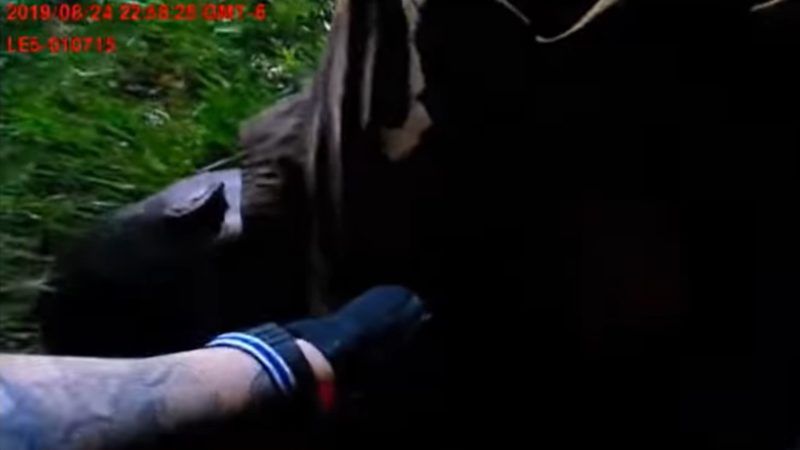Activists Force New Look at the Death of Elijah McClain
Police used a controversial neck restraint during McClain's arrest.

In the wake of George Floyd's death at the hands of a Minneapolis police officer, anti-brutality protesters have demanded more accountability in lesser-known cases across the country. One of those cases involves Elijah McClain, a man who died during an encounter with the Aurora Police Department (APD). Now that the story has gone viral, Colorado Gov. Jared Polis has instructed his legal team to explore possible action.
On August 24, 2019, a man called 911 to report that McClain was walking with a ski mask on and had put his hands up when the caller passed by. Not everything that happened after that is clear, but much of it can be pieced together from three hours of body camera footage subsequently released by the APD:
One video shows McClain objecting as police arrest him, telling them that he's an introvert on his way home. The officers then decide to move him to some nearby grass and to lay his body down. What happens next is difficult to determine, but you can hear sounds of a struggle and a "Stop, dude" from one of the officers. McClain is then restrained.
Two more videos begin with sounds of a restrained McClain in the background. McClain is heard telling the officers that he can't breathe and pleading that he's an introvert and "just different." In the background, you can hear an officer saying that the events began because McClain reached for a cop's gun.
One asks if McClain is "out." Another responds that he heard some snoring but McClain remained conscious.
"Do we have anything other than him being suspicious?" an officer asks. Others reply, "No."
An officer then explains his side of the story. He says McClain immediately pulled his arms into his body when approached. At that point, the officer says, he told McClain he just wanted to talk. The officer says McClain responded by making the same motion with his arms several times and speaking in incoherent sentences. The officer also states that while he didn't feel anything, another cop warned him that McClain was trying to grab his gun. The officer says he attempted to perform a carotid control hold—a controversial neck restraint—but let go because he was in a bad position. (The carotid control hold is highly controversial, as the potential for it to become a chokehold is high. In a February statement, the APD justified the use of the hold as being "within policy and consistent with training." On June 9, the department updated its policies to prohibit the maneuver.)
Another video picks up the scene from a different perspective, showing the Aurora Fire Department arriving and administering a dose of ketamine to subdue McClain. Aurora Fire Rescue Deputy Chief Steve McInerny has since stated that this was consistent with department and regional protocol.
McClain went into cardiac arrest twice while being transported to the hospital and was later declared brain dead. On August 30, 2019, his family took him off life support.
An autopsy report from the Adams County Coroner's Office listed McClain's cause of death as undetermined. "Most likely the decedent's physical exertion contributed to death. It is unclear if the officer's action contributed as well," the report says. As for the ketamine, "an idiosyncratic drug reaction…cannot be ruled out."
The local District Attorney's Office announced in November that it would not pursue charges against the officers. "Based on the investigation presented and the applicable Colorado law, there is no reasonable likelihood of success of proving any state crimes beyond a reasonable doubt at trial," the D.A. wrote. "Therefore, no state criminal charges shall be filed as a result of the incident."
But now that McClain's story is receiving national attention, there may be some action after all. On Wednesday, Gov. Polis tweeted that he had instructed his legal council to examine the state's role in the case.
"Public confidence in our law enforcement process is incredibly important now more than ever," Polis added. "A fair and objective process free from real or perceived bias for investigating officer-involved killings is critical."


Show Comments (18)